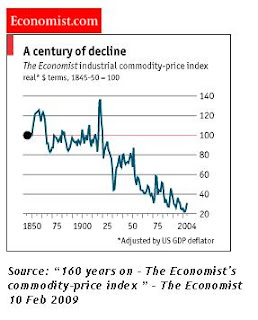Friday, March 22, 2013
My very own website - thanks to Tyler Moore
Posted by
nzchook
at
5:04 pm
1 comments
![]()
Monday, September 20, 2010
Survey: Who has bought something from Apple in last 12 months?
I was facilitating a discussion on emerging trends last week in New Zealand. The audience of 35 was a 50/50 mix of Gen-Xers and Baby-Boomers working in the public sector, with a focus on Information Technology roles.
Posted by
nzchook
at
7:06 am
0
comments
![]()
Saturday, September 18, 2010
Tech Company Market Caps: major movements
I have been hearing lots of media noise and excitement about:
- double digit global smartphone growth,
- the incredible uptake of the Apple iPad tablet,
- the accelerating importance of Google's Android OS for smartphones.
Posted by
nzchook
at
9:18 am
0
comments
![]()
Monday, December 21, 2009
Exciting new book - Solar Trillions
- “Green” Nuclear,
- Wind Energy,
- Geothermal,
- Hydro power,
- Bioenergy,
- “Clean” Coal.
Posted by
nzchook
at
1:39 pm
0
comments
![]()
Wednesday, August 19, 2009
Brain industries, not dairy and tourism are the way forward for New Zealand
Posted by
nzchook
at
10:36 am
5
comments
![]()
Saturday, August 08, 2009
Shrinks & climate change: driving the sense of urgency for action
- Uncertainty – Research has shown that uncertainty over climate change reduces the frequency of "green" behavior.
- Mistrust – Evidence shows that most people don't believe the risk messages of scientists or government officials.
- Denial – A substantial minority of people believe climate change is not occurring or that human activity has little or nothing to do with it, according to various polls.
- Undervaluing Risks – A study of more than 3,000 people in 18 countries showed that many people believe environmental conditions will worsen in 25 years. While this may be true, this thinking could lead people to believe that changes can be made later.
- Lack of Control – People believe their actions would be too small to make a difference and choose to do nothing.
- Habit – Ingrained behaviors are extremely resistant to permanent change while others change slowly. Habit is the most important obstacle to pro-environment behavior, according to the report.
Posted by
nzchook
at
12:29 pm
0
comments
![]()
Sunday, July 26, 2009
Robotic warfare expert sees robots as lowering barriers to war
 (CNN) U.S. Secretary of Defense Robert Gates wants more unmanned aerial vehicles (UAVs). Already he has said that the next generation of fighter planes -- the F-35 that took decades to develop at a cost of more than half-a-billion dollars each -- will be the last manned fighter aircraft.
(CNN) U.S. Secretary of Defense Robert Gates wants more unmanned aerial vehicles (UAVs). Already he has said that the next generation of fighter planes -- the F-35 that took decades to develop at a cost of more than half-a-billion dollars each -- will be the last manned fighter aircraft.
The drones are dramatically tilting the war [in Afghanistan] in favour of the United States. Predators, for example, played a key role in killing al Qaeda in Iraq leader Abu Musab al Zarqawi in 2006. UAVs are credited with killing more than half al Qaeda's top 20 leaders.
Lt. Gen. David Deptula, USAF, explains that the next phase will enable a single drone to provide as many as 60 simultaneous live video feeds directly to combat troops. Some new drones will be as small as flies, others walk -- all appear destined to work with decreasing human input.
“The future of how you use these un-manned systems or remotely piloted systems is really unlimited," says Deptula, based at the Pentagon and racing to keep pace with battlefield needs as well as Gates's demands. "We need to open our minds and think more about capability and impact we are going to achieve as opposed to how we've done business in the past.”
Robotic warfare expert Peter Singer, who advised President Barack Obama's campaign team and has authored “Wired for War” says that remote warfare is changing mankind's monopoly on how conflict is fought for the first time in 5,000 years. All that limits its advance is its application, not the technology. "The barriers of war in our society are already lowering," he says. "This tech may allow them to lower to the ground. And we might already be seeing this in the strikes being carried out on Pakistan.”
Posted by
nzchook
at
2:00 pm
0
comments
![]()




